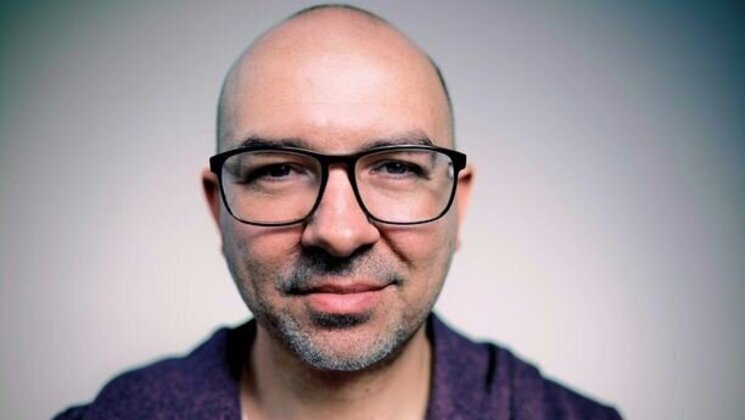-
Faculty of Arts and HumanitiesJakobi 2, r 116-121 51005 Tartu linn, Tartu linn, Tartumaa ESTJakobi 2 51005 Tartu linn, Tartu linn, Tartumaa ESTJakobi 2, IV korrus 51005 Tartu linn, Tartu linn, Tartumaa ESTJakobi 2, III korrus, ruumid 302-337 51005 Tartu linn, Tartu linn, Tartumaa ESTÜlikooli 16 51003 Tartu linn, Tartu linn, Tartumaa ESTLossi 3 51003 Tartu linn, Tartu linn, Tartumaa ESTÜlikooli 18 50090 Tartu linn, Tartu linn, Tartumaa ESTPosti 1 71004 Viljandi linn, Viljandimaa ESTJakobi 2 51005 Tartu linn, Tartu linn, Tartumaa ESTJakobi 2 51005 Tartu linn, Tartu linn, Tartumaa ESTFaculty of Social SciencesLossi 36 51003 Tartu linn, Tartu linn, Tartumaa ESTJakobi 5 51005 Tartu linn, Tartu linn, Tartumaa ESTLossi 36, ruum 301 51003 Tartu linn, Tartu linn, Tartumaa ESTNarva mnt 18 51009 Tartu linn, Tartu linn, Tartumaa ESTNäituse 2 50409 Tartu linn, Tartu linn, Tartumaa ESTNäituse 20 - 324 50409 Tartu linn, Tartu linn, Tartumaa ESTLossi 36 51003 Tartu linn, Tartu linn, Tartumaa ESTRaekoja plats 2 20307 Narva linn, Ida-Virumaa ESTRingi 35 80012 Pärnu linn, Pärnu linn, Pärnumaa ESTLossi 36 51003 Tartu linn, Tartu linn, Tartumaa ESTLossi 36 51003 Tartu linn, Tartu linn, Tartumaa ESTFaculty of MedicineRavila 19 50411 Tartu linn, Tartu linn, Tartumaa ESTBiomeedikum, Ravila 19 50411 Tartu linn, Tartu linn, Tartumaa ESTNooruse 1 50411 Tartu linn, Tartu linn, Tartumaa ESTL. Puusepa 1a 50406 Tartu linn, Tartu linn, Tartumaa ESTL. Puusepa 8 50406 Tartu linn, Tartu linn, Tartumaa ESTRavila 19 50411 Tartu linn, Tartu linn, Tartumaa ESTUjula 4 51008 Tartu linn, Tartu linn, Tartumaa ESTRavila 50411 Tartu linn, Tartu linn, Tartumaa ESTRavila 19 50411 Tartu linn, Tartu linn, Tartumaa ESTFaculty of Science and TechnologyVanemuise 46 - 208 51003 Tartu linn, Tartu linn, Tartumaa ESTNarva mnt 18 51009 Tartu linn, Tartu linn, Tartumaa ESTRiia 23b/2 51010 Tartu linn, Tartu linn, Tartumaa ESTRavila 14a 50411 Tartu linn, Tartu linn, Tartumaa ESTNarva mnt 18 51009 Tartu linn, Tartu linn, Tartumaa ESTRiia 23, 23b - 134 51010 Tartu linn, Tartu linn, Tartumaa ESTObservatooriumi 1 61602 Tõravere alevik, Nõo vald, Tartumaa ESTNooruse 1 50411 Tartu linn, Tartu linn, Tartumaa ESTJ. Liivi tn 2 50409 Tartu linn, Tartu linn, Tartumaa ESTVanemuise 46 51003 Tartu linn, Tartu linn, Tartumaa ESTVanemuise 46 51003 Tartu linn, Tartu linn, Tartumaa ESTArea of Academic SecretaryLossi 3 51003 Tartu linn, Tartu linn, Tartumaa ESTUppsala 6, Lossi 36 51003 Tartu linn, Tartu linn, Tartumaa ESTArea of Head of FinanceÜlikooli 17 51005 Tartu linn, Tartu linn, Tartumaa ESTArea of Director of AdministrationÜlikooli 18A (III korrus) 51005 Tartu linn, Tartu linn, Tartumaa ESTÜlikooli 18, ruumid 102, 104, 209, 210 50090 Tartu linn, Tartu linn, Tartumaa ESTArea of RectorArea of Vice Rector for Academic AffairsUppsala 10 51003 Tartu linn, Tartu linn, Tartumaa ESTÜlikooli 18b 51005 Tartu linn, Tartu linn, Tartumaa ESTArea of Vice Rector for ResearchW. Struve 1 50091 Tartu linn, Tartu linn, Tartumaa ESTArea of Vice Rector for DevelopmentNarva mnt 18 51009 Tartu linn, Tartu linn, Tartumaa ESTVanemuise 46 51003 Tartu linn, Tartu linn, Tartumaa ESTLossi 25 51003 Tartu linn, Tartu linn, Tartumaa EST
What you need to know before applying for a doctoral programme

Doctoral studies are a part of the career path, giving you the knowledge and future skills needed to become a top specialist or manager. During the studies, you learn to formulate important problems, find smart solutions to them, and lead teams and projects. This page provides a quick overview of what you need to know before applying for a doctoral programme.
The doctoral journey starts with selecting a specialisation and topic for the doctoral thesis and finding a suitable supervisor. The University of Tartu offers 50 specialisations across eight doctoral programmes. Depending on the specialisation, it is possible to apply with your own topic or choose one from the list of projects proposed by the university.
Doctoral studies run for four years. It is also possible to complete them over a longer period, up to eight years, with a reduced workload. In this case, you must work with at least 0.5 workload.
Choose a suitable (career) path
A doctoral student is usually a junior research fellow who enters into an employment contract with the university and completes a doctoral programme according to the contract. As a junior research fellow, you can devote yourself to research and studies. Similar examples are few in Europe.
The salary paid to a junior research fellow is comparable to the Estonian average salary: in 2025, the minimum monthly salary for a full-time junior research fellow is 1,950 euros. The employment contract comes with social guarantees.
In some cases, it is possible to start doctoral studies without an employment contract with the university. If you work outside the university and do not want to share your workload between two jobs, explore the possibilities of taking up doctoral studies without an employment contract.
If you are working outside the university on the same topic as you would like to explore in your future doctoral thesis, see the opportunities of an industrial doctorate. If your employer is interested in collaborating with a university, it is a good way of combining doctoral research with your day job.
Reminder for future doctoral students
- As a doctoral student, your main job will be research.
- Doctoral studies allow you to prepare for work as an independent researcher and acquire essential professional and future skills. After completing the doctoral programme, you can continue your career as a leading specialist in the public sector or an enterprise, or as a researcher and teaching staff member at a university. It is worth starting early to plan your career and develop the necessary profile.
- You can choose which future skills you want to focus on. Doctoral programmes are flexible in terms of the choice of courses and training.
- The centres for doctoral studies, the Centre for Professional Development, and the Estonian Doctoral School provide self-improvement opportunities that address both the need to develop scientific thinking and changes in the labour market.
- You will be supported by your supervisor(s), the head of your specialisation, the academic affairs specialist at the institute and the faculty’s centre for doctoral studies, as well as by the university’s support units, including the Counselling Centre and the Human Resources Office.
- Doctoral studies at the University of Tartu are developed based on international standards and the best practices, and rely on feedback from doctoral students.
- Doctoral studies are long-term and require a multifaceted effort. You can design the learning path yourself with the help of your supervisor(s). Make considerate choices and keep in mind your overall timetable and future career goals. Plan your workload and schedule carefully so that you can progress well in your studies while maintaining your health.
Read further about doctoral studies and admission.
Read more similar news






